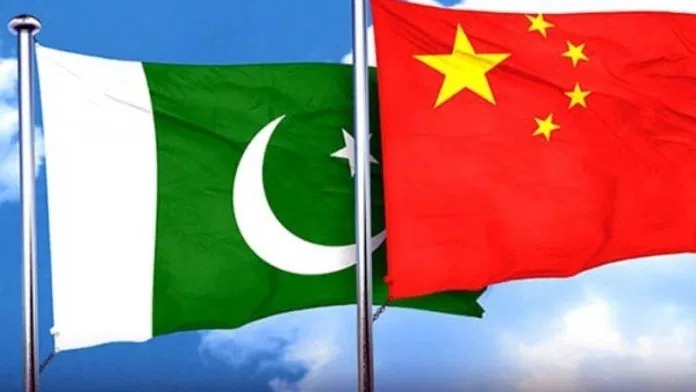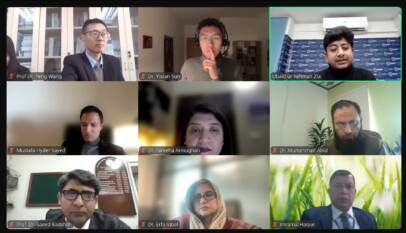Pakistani entrepreneurs can seek Chinese help in diversifying their agricultural products: Ma Xiaoyan
While talking to China Economic Net, Ma Xiaoyan, Chairman of UNI International Business Consultancy Co Ltd said Pakistani entrepreneurs must take a global and international perspective in their business practices. He called for an expansion in Pakistan’s exports to China. Since the first phase of the China Pakistan Free Trade Agreement, bilateral trade volume has increased from USD 2.2 billion in 2005 to USD 15.6 billion in 2019, but these are only limited to a few products. He suggested that the entrepreneurs should change the original rough production methods, introduce international market quality certification systems and quality control standards, research the target consumer groups, understand the needs of consumers, and improve food formula to meet the consumption habits of consumers. He also offered that entrepreneurs can seek Chinese support.
rt more goods from Pakistan, especially agricultural products. But by contrast, Pakistan’s agricultural products still show a slight disadvantage in the competition of similar products in the international market.
Touching on this issue, Ma Xiaoyan, Chairman of UNI International Business Consultancy Co Ltd who has been engaged in business management for 15 years in Pakistan and has worked in a local family business with a history of 170 years for 8 years, told China Economic Net that Pakistani entrepreneurs must take a global and international perspective in their business practices.
Starting from the cultivation of agricultural products, they should change the original rough production methods, introduce international market quality certification systems and quality control standards, research the target consumer groups, understand the needs of consumers, and improve food formula to meet the consumption habits of consumers, Ma said.
In addition, they can seek Chinese partners, who are mainly responsible for the control of production technology, product quality and sales market. They can vigorously develop the huge potential consumer market in China with the help of the China-Pakistan free trade policies, Ma said.
As a typical agricultural country, Pakistan has a relatively high proportion of agriculture and service industries in its industrial structure, and its industrial development is insufficient.
This has led to its export agricultural products with few varieties and low added value.
Therefore, Pakistan traditional agriculture urgently needs to be transformed and upgraded, releasing more room for economic growth, Ma said.
Ma believes that the development of modern agriculture and modern industry in Pakistan is an inevitable trend in the future. Infrastructure investment driven by the China-Pakistan Economic Corridor project is an important opportunity for Pakistan to develop modern agriculture and industry. Pakistan has a solid foundation of water conservancy and irrigation, and a competitive labor force.
On this basis, focusing on the deep processing of high value-added agricultural products is the best way to increase the value of Pakistan export products, and also a booster for the development of its industrial chain.
At the same time, Pakistan should also improve its supporting service systems such as warehousing, cold chain, and logistics to promote the transformation and upgrading of its agriculture and industry, Ma told the reporter.
Ma is full of confidence in the continuous and in-depth cooperation between China and Pakistan.
He said that the 70-year friendship laid the most solid foundation for the two countries.
He also shared a story with the reporter that when he first cleared customs at Pakistan’s Sost dry port in 2006, the local agent paid 500,000 rupees in advance for him when he learned that Ma is a Chinese person.
As CPEC enters the second phase, the two countries will step up cooperation in agriculture.
In the future, China’s investment in processing industry of agricultural products will be expanded to onion, mango, beans, rice, wheat, vegetables and meat in Pakistan.
Meanwhile, China will set up a pest control research center in Karachi to provide local farmers with high-quality seeds. It will also help Pakistan increase its productivity and enhance the market competitiveness of its agricultural products in the future.
Experts highlight green SEZs under CPEC for sustainable development
ISLAMABAD – The experts on Monday emphasised the significance of enhanced collabor…












